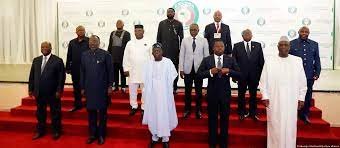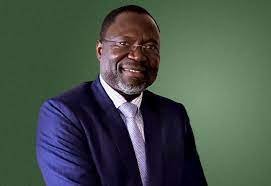Crisis Unfolds in Niger: ECOWAS Initiates Urgent Diplomatic Efforts to Restore Constitutional Order
A Coup in Niger Triggers Regional Emergency Response and Diplomatic Manoeuvre by ECOWAS
By Stephen O. Aderinto, PhD candidate, University of Sheffield
16th Aug, 2023
Niger, Sahel Region: In a stunning turn of events, Niger, a key nation in the Sahel region of Africa, finds itself in the midst of a political crisis following a coup d'état on July 26, 2023. This swift and unexpected upheaval has triggered a rapid response from regional leaders and has led to the activation of a "stand-by" force by the Economic Community of West African States (ECOWAS), reflecting the urgency of the situation.
The military junta in Niger were issued a one-week ultimatum by ECOWAS to reinstate the ousted former president, Mohamed Bazoum. This directive, as articulated in an ECOWAS statement, emphasises the need “to restore constitutional order in the Republic of Niger.” ECOWAS’s current stance entails pursuing a diplomatic solution rather than resorting to military intervention, with the aim of achieving a peaceful resolution to the crisis.
Niger’s military junta. Photo credit: Archyde
However, the one-week deadline expired on August 6, 2023, and there has been no alteration to the ongoing political turmoil that erupted within the country. ECOWAS President, Dr Omar Alieu Touray, has been outspoken about the incident. In a recent televised interview, he cautioned about the repercussions for “member states who, by their action directly or indirectly, hinder the peaceful resolution of the crisis.” Additionally, he disclosed that ECOWAS had engaged in a dialogue with the junta. But, they conveyed their intention to retain the democratically-elected president “as a hostage”. In response ECOWAS has imposed harsh economic and travel sanctions on Niger, which becomes the fourth of its member states to experience a coup in the past three years including Mali, Burkina Faso and Guinea. These three countries and Algeria, have expressed solidarity with Niger’s junta amid the ongoing crisis.
ECOWAS leaders at a meeting in Abuja, Nigeria. Photo credit: Gbemiga Olamikan/AP/
On Friday, August 11, 2023, protesters in their thousands ravaged the French military base in the country’s capital, Niamey. They were heard chanting “down with France, down with ECOWAS”, refuting the influence of France and ECOWAS within the country. Other people were seeing waving Nigerien and Russian flags. The underlying reason for the hostile behaviour towards France stems from the perceived continuation of imperialism of France, decades after Niger gained it's independence from France in 1960. Russia has increased its engagement with Niger in recent years through the mercenary group, Wagner, capitalising on the anti-colonial sentiments of Nigeriens to enhance its influence across the nation and other parts of the continent. Although Russia supported ECOWAS’s stance on pursuing a peaceful resolution to the crisis, it also cautioned that military intervention could result in a protracted conflict. Nigerian President Bola Tinubu, who currently chairs ECOWAS, has consistently asserted that the use of force will only be considered as a last resort.
Dr. Omar Alieu Touray is the President of the ECOWAS Commission. Image Credit: ECOWAS
Recently it has been reported that the ousted president and his family, who have been detained by Niger’s military junta, are in “rapidly deteriorating conditions.” They have been deprived of access to electricity, clean water, and necessary medicine, thus infringing upon his human rights. This stance has been expressed by the United Nations High Commissioner for Human Rights, Chief Volker Türk, who is now calling for the complete respect and protection of the human rights of the ousted president and others who are being held in arbitrary detention.
The likelihood of military intervention in Niger and its potential timing, if it indeed occurs, pose challenging questions that are currently hard to address. Looking back at the instance when ECOWAS assembled troops in Gambia in 2017, a scenario less intricate than Niger’s but it took seven weeks to address. According to some analysts, the deployment of ECOWAS forces in Niger might encounter a significant time delay, even if the regional bloc opts for military intervention.





